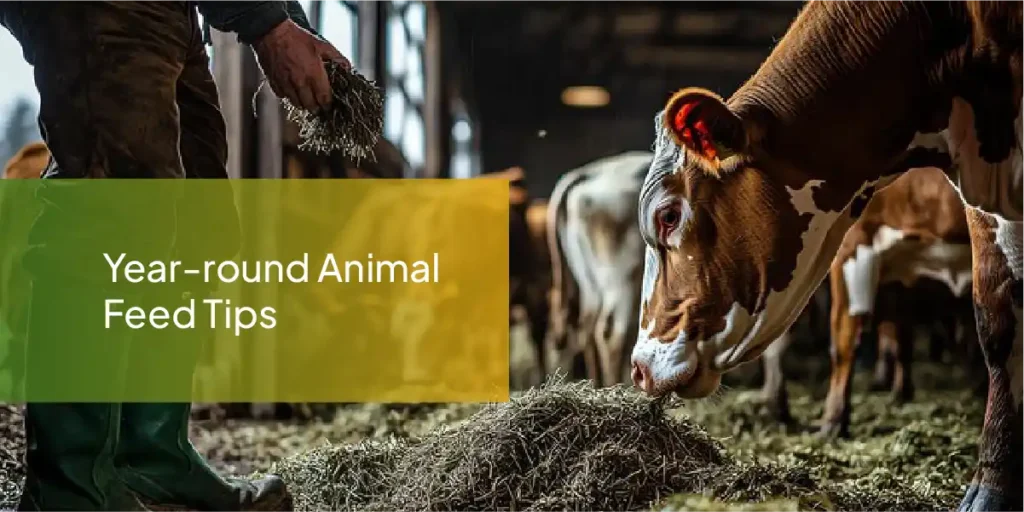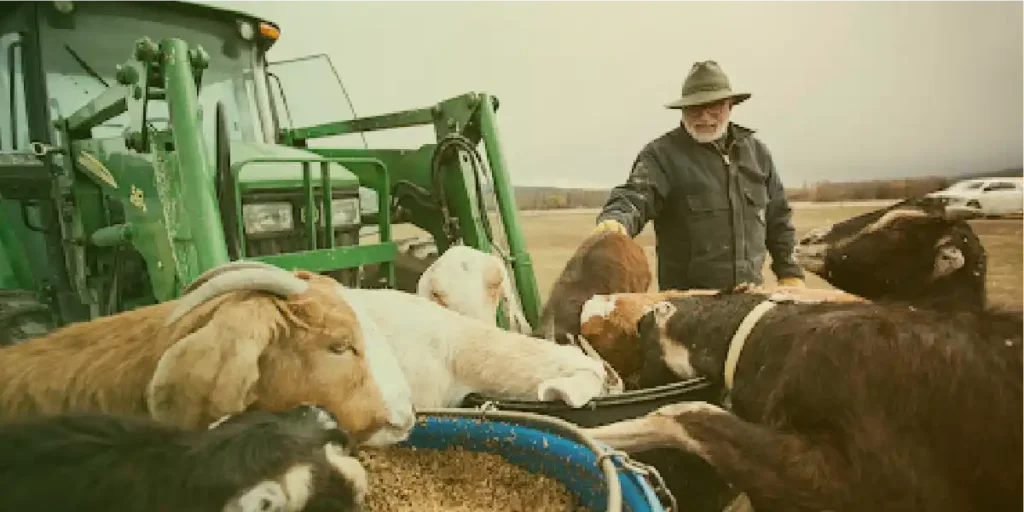Feeding your livestock properly during seasonal changes is crucial for their health, productivity, and overall well-being. Each season brings unique challenges and nutritional requirements, and as a responsible farmer or livestock owner, adapting to these changes is vital. In this blog, we’ll explore the best seasonal feeding tips to help you keep your animals thriving all year long. Whether you are raising cattle, sheep, goats, pigs, or poultry, these insights will help you maintain a productive and healthy farm.
Why Seasonal Feeding Matters
Seasonal changes affect not only the environment but also the nutritional needs and behavior of livestock. Here’s why adapting their feed matters:
- Maintains Health: Proper nutrition boosts immunity and prevents seasonal illnesses. Healthy livestock is essential for a successful farm operation.
- Enhances Productivity: Animals fed according to seasonal needs produce better milk, eggs, or meat, improving farm profitability.
- Reduces Stress: Seasonal feed adjustments help animals adapt to weather changes comfortably, minimizing stress-related health issues.
Spring Feeding Tips
Spring is a season of renewal, but it also brings unpredictable weather and fresh pastures. Here’s how to adjust your livestock’s diet:
- Introduce Pasture Gradually: New spring grass is rich but can cause bloating. Gradually introduce animals to fresh grazing to prevent digestive issues like bloat and acidosis.
- Supplement with Hay: Provide hay to balance the high moisture content in spring grass. This helps avoid diarrhea and other digestive problems.
- Focus on Minerals: Offer mineral supplements, especially magnesium, to prevent grass tetany in grazing animals. Use mineral blocks or mix supplements with feed for easy consumption.
- Monitor Weight Gain: Keep an eye on your livestock’s weight to ensure they are benefiting from the lush spring forage.
Summer Feeding Tips
Summer’s heat can stress animals and reduce their appetite. Keep them hydrated and nourished with these tips:
- Provide Fresh Water: Ensure constant access to clean and cool water to prevent dehydration. Water is critical for all livestock, especially in hot weather.
- Use High-Energy Feeds: Offer energy-dense feeds like grains or concentrates to make up for reduced intake during hot days.
- Electrolytes for Hydration: Add electrolytes to water to replace essential minerals lost through sweating. This helps prevent heat stress and supports overall health.
- Shade and Ventilation: Protect animals from heat stress with proper shelter and ventilation. Use fans, misting systems, or natural shade to keep them comfortable.
- Adjust Feeding Schedule: Feed livestock early in the morning or late in the evening when temperatures are cooler to encourage better feed intake.
Fall Feeding Tips
Fall marks the transition to colder weather, and preparing your livestock for winter is key:
- Stockpile Forage: Store high-quality hay and silage to ensure a steady food supply as pasture quality declines.
- Increase Calories: Begin providing calorie-dense feeds like grains or corn to help animals build fat reserves for winter. This is especially important for beef cattle, sheep, and goats.
- Focus on Parasite Control: Conduct deworming treatments, as livestock are more prone to parasites in the fall, so do focus on parasite control in the fall is important. This ensures their digestive systems are functioning optimally.
- Provide Protein Supplements: As pasture protein content drops, consider supplementing with protein blocks or soybean meal.
- Monitor Weather Changes: Be proactive with feeding adjustments as temperatures fluctuate, ensuring animals stay comfortable and nourished.
Winter Feeding Tips
Winter brings harsh conditions and higher energy demands for livestock. Here’s how to keep them nourished:
- Feed for Energy: Provide extra grains or energy-rich feeds to meet the higher caloric needs of livestock. This is especially important for pregnant or lactating animals.
- Keep Feed Warm: If possible, offer feed and water at moderate temperatures to encourage consumption. Prevent water from freezing using heated waterers.
- Supplement with Vitamins: Include vitamin and mineral supplements to maintain health during the colder months. Pay special attention to vitamins A, D, and E, which are essential in winter.
- Shelter and Insulation: Ensure animals have access to warm, dry shelters to conserve energy. Use bedding like straw to keep them comfortable.
- Prevent Overcrowding: Overcrowding in shelters can lead to stress and increased disease risk. Ensure adequate space for all animals.
General Tips for Year-Round Success

- Monitor Body Condition: Regularly assess your livestock’s body condition to adjust feed as needed. A healthy body condition score is a good indicator of proper nutrition.
- Work with a Nutritionist: Consult a livestock nutritionist to create season-specific feeding plans tailored to your animals’ needs.
- Keep Records: Track feed types, quantities, and animal performance to refine your strategy over time. Good records help identify what works best for your farm.
- Invest in Quality Feed: High-quality feed ensures better health and productivity, regardless of the season. Avoid cheap, low-quality feed that can compromise livestock health.
- Regular Health Checks: Work with a veterinarian to ensure animals are healthy and receiving the right vaccinations and treatments.
Conclusion
Adapting your livestock’s diet to the seasons is essential for their health, productivity, and overall comfort. By following these seasonal feeding tips, you can ensure your animals remain healthy and stress-free all year long. Proper planning, attention to detail, and using high-quality feed will make a significant difference in your farm’s success.
Whether you are feeding cattle, poultry, goats, or any animal, these tips are designed to help you optimize their nutrition and performance.
Stay ahead in animal care!
Subscribe to our newsletter for expert tips, industry updates, and the latest in premium animal feed.
Explore our high-quality livestock feed options. For better growth and vitality of your cattle!


